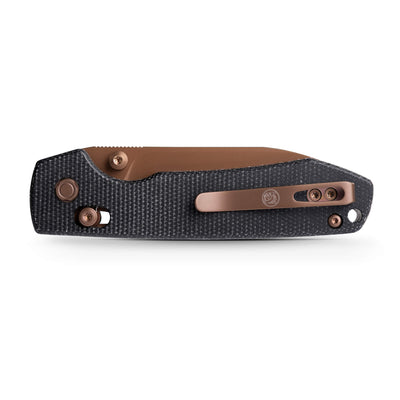Unveiling the Secrets of Fixed Blade Knives: Discover Their Unique Uses and Benefits!
Fixed blade knives have carved out a significant niche in the world of cutting tools, gaining popularity among outdoor enthusiasts, hunters, and everyday users alike. Unlike their folding counterparts, fixed blade knives offer a sturdy design that is both reliable and efficient for a wide array of tasks. This article aims to explore the various types of fixed blade knives, their unique uses, benefits, and characteristics, helping you understand the best options available for your needs. Whether you’re an avid camper, a culinary enthusiast, or just someone who appreciates a good-quality knife, understanding fixed blade knives can enhance your experience and ensure you choose the right tool for the job.

Understanding Fixed Blade Knives
Fixed blade knives are characterized by a blade that is permanently fixed in place, providing a robust and reliable cutting tool. Unlike folding knives that can collapse into a compact form, fixed blade knives are designed for strength and ease of use, making them ideal for heavy-duty applications. Common features of fixed blade knives include a full tang construction, where the blade extends through the handle, ensuring maximum strength and durability. The blades are typically made from high-quality materials, such as stainless steel or carbon steel, which can withstand rigorous use. Additionally, fixed blade knives come in various blade shapes and sizes, each tailored to different tasks, from slicing to chopping.
Types of Fixed Blade Knives
Fixed blade knives come in several specialized forms, each designed for specific applications. Understanding these types can help you choose the right knife for your needs. Survival knives are built to handle a variety of emergency situations, featuring thick blades and often incorporating additional tools like fire starters or whistle attachments. Hunting knives are designed with precision in mind, featuring sharper blades that allow for clean cuts and often come with a gut hook for field dressing game. Tactical knives, on the other hand, are crafted for utility and self-defense, often used by military and law enforcement personnel, featuring aggressive blade designs and sturdy grips for reliable handling in critical situations.
Survival Knives
Survival knives are essential tools for anyone venturing into the wilderness. Their robust construction and versatile features make them invaluable in survival scenarios. Typically, they have a thicker blade for durability, enabling users to perform tasks such as batoning wood, preparing food, or even shelter building. A friend of mine, an avid camper, swears by his survival knife, claiming it’s saved him in numerous precarious situations, from starting fires to preparing meals in the great outdoors. The ergonomic handle design also ensures a comfortable grip, making extended use less taxing on the hands.
Hunting Knives
Hunting knives are specifically designed for processing game. They usually feature a sharp, narrow blade that allows for precision cuts, making tasks like skinning and gutting easier. These knives often come with a specific blade shape, such as drop point or clip point, tailored for different hunting needs. A hunting trip with friends introduced me to the importance of a good hunting knife; we spent hours tracking game, and when the moment came, having a reliable knife made all the difference in efficiently preparing our catch.
Tactical Knives
Tactical knives are built for performance under pressure. They often feature a serrated edge for versatility and are designed to be easily deployable. Used frequently by military and law enforcement, these knives prioritize functionality and reliability. In discussions with a friend who served in the military, he emphasized how critical a good tactical knife was in various operations, from cutting ropes to self-defense situations. The blend of security and utility makes tactical knives a popular choice for those who require a dependable tool in high-stress environments.
Benefits of Using Fixed Blade Knives
The advantages of fixed blade knives are numerous. Their durability is unmatched, as the lack of moving parts means there is little to break or wear down over time. They are also incredibly easy to use; simply pull them out of their sheath, and they are ready for action. This makes them particularly effective in emergency situations. Additionally, fixed blade knives are versatile; they can handle a range of tasks, from heavy-duty cutting to intricate slicing. In my experience, they often outperform folding knives in terms of stability and control, particularly when performing tasks that require precision and strength.
Choosing the Right Fixed Blade Knife
Selecting the right fixed blade knife involves considering several key factors. First, assess the intended use; whether for survival, hunting, or tactical purposes, understanding your primary need will guide your choice. Next, consider the size of the knife; a larger knife may be better for heavy-duty tasks, while a smaller blade can offer more control for delicate work. The material of the blade is also crucial; stainless steel offers corrosion resistance, while carbon steel provides superior edge retention. Lastly, don’t overlook the design and comfort of the handle, as it plays an essential role in usability, especially during prolonged use.
Key Takeaways on Fixed Blade Knives
In summary, fixed blade knives are invaluable tools that cater to a variety of needs, from outdoor adventures to tactical situations. By understanding the different types of fixed blade knives, their benefits, and how to choose the right one, you can ensure that you’re equipped with the perfect tool for any task. Whether you are an outdoor enthusiast or simply someone who values quality craftsmanship, the right fixed blade knife can be a reliable companion that serves you well for years to come. Embrace the versatility and efficiency of fixed blade knives, and you’ll never look back.







تعليقات